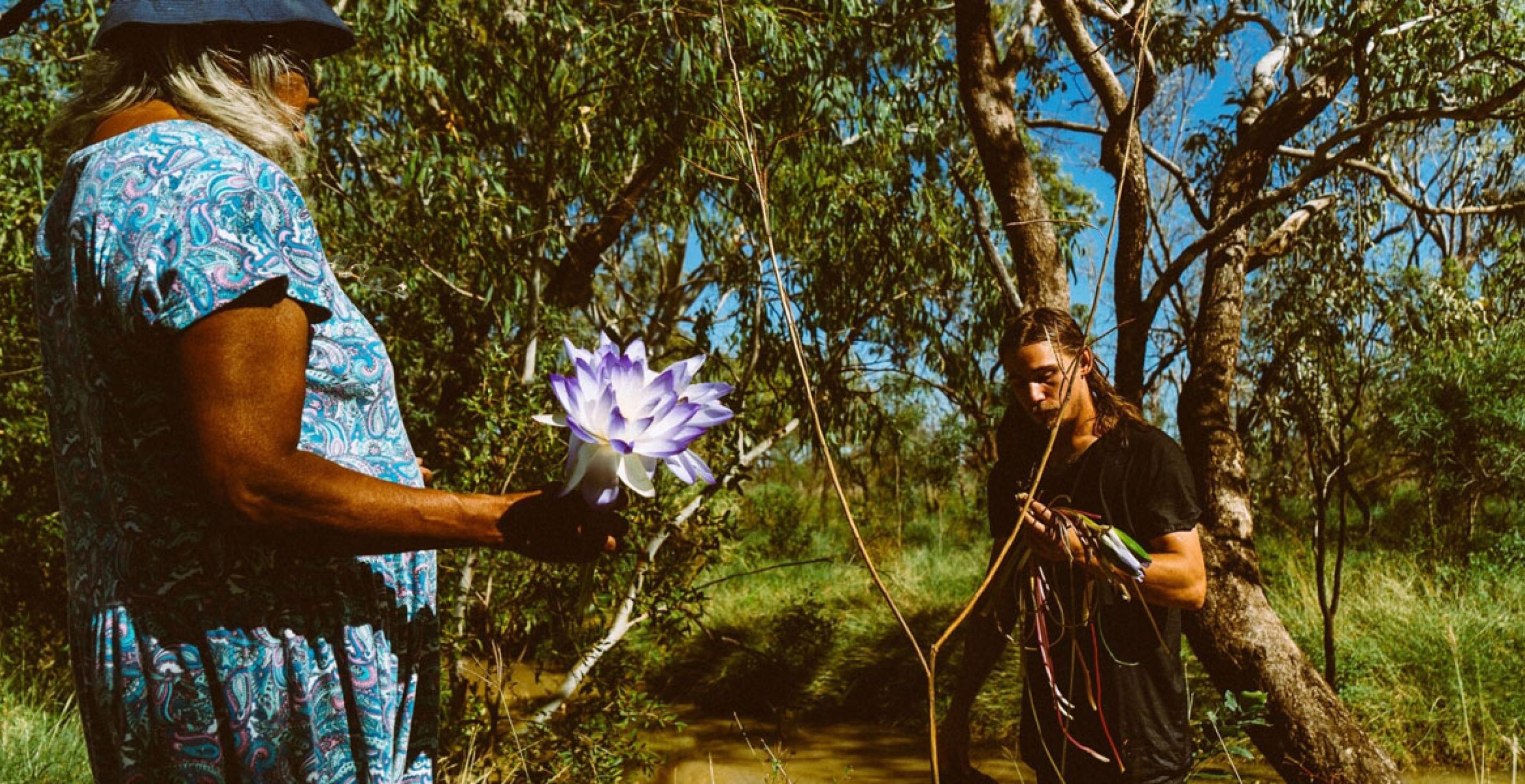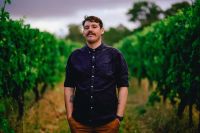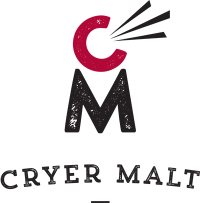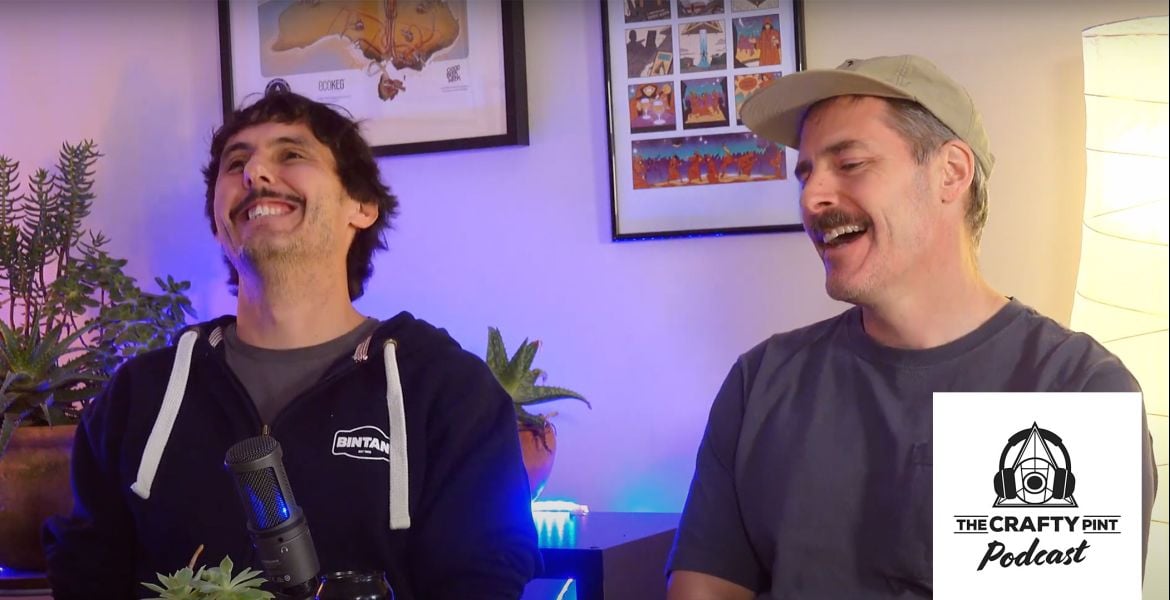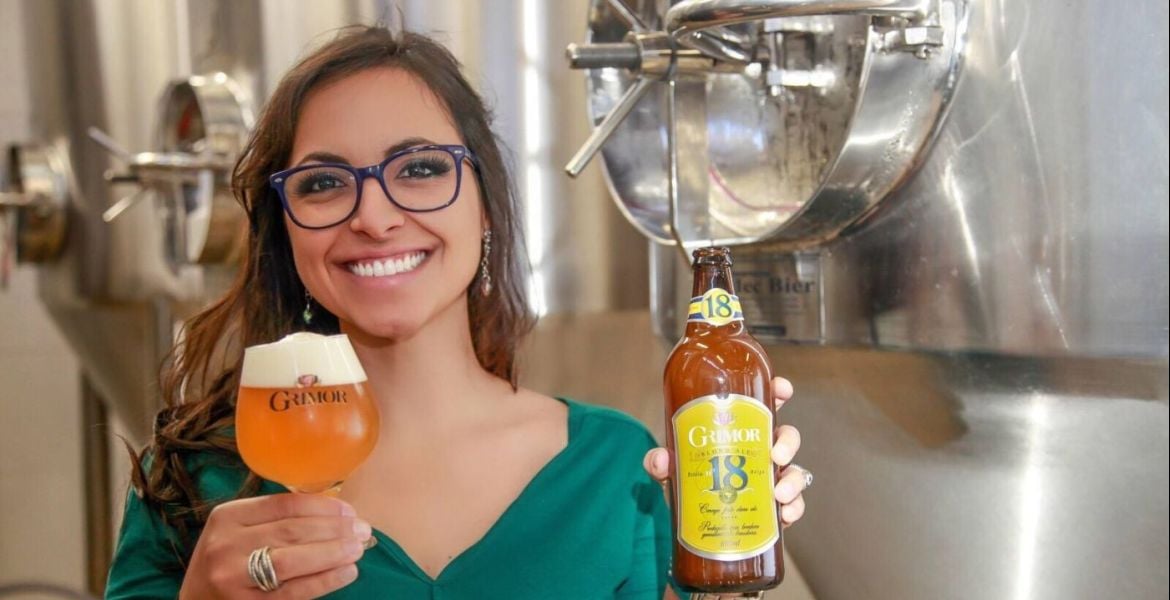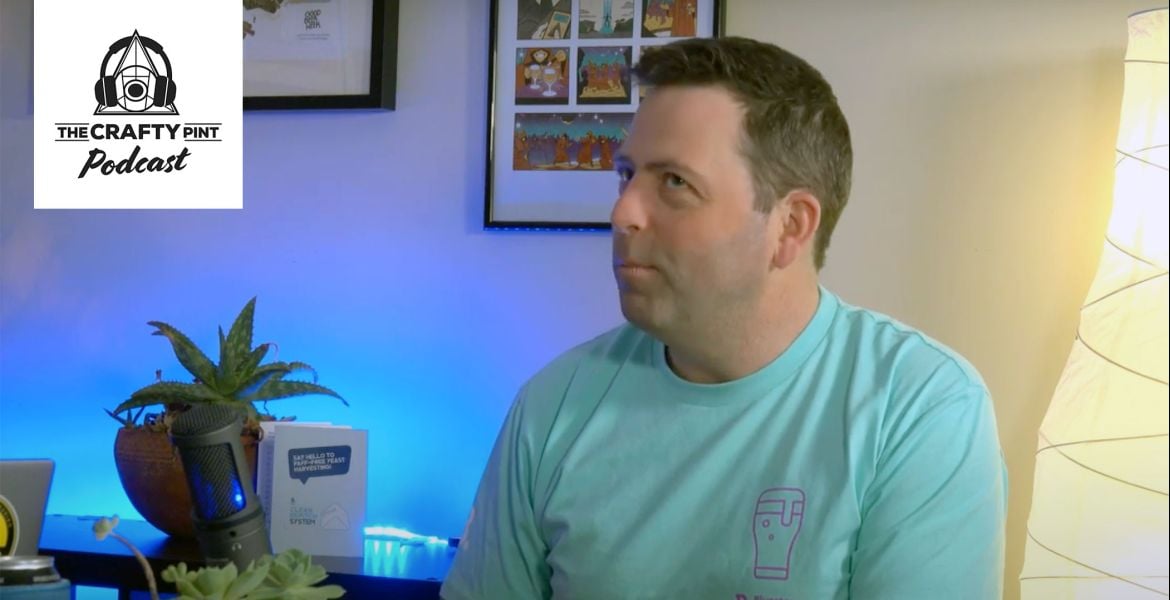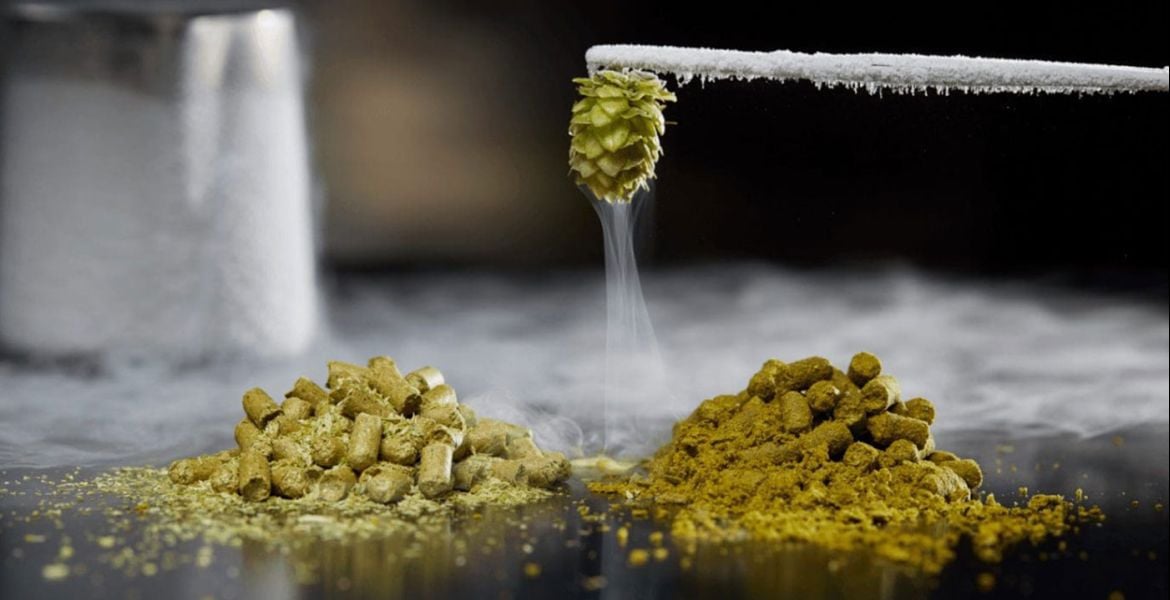Next month sees WA brewer Beerfarm launch the seventh release in their Native Series. Their latest collaboration with roaming dining experience hosts Fervor is the Woolya Wah Red Ale, which has been infused with Western Australian cyclops wattleseeds (Acacia cyclops) and Wattah wattle (Acacia decurrens).
If someone was to stumble upon this limited release collab, they could be forgiven for assuming the beer is something typically edgy and on-trend from a contemporary Australian craft brewery, yet the longstanding partnership between Beerfarm and Fervor is more significant, and one that's garnered praise from the wider brewing community.
The Native Series was first born out of curiosity back in 2017. Beerfarm head brewer Josh Thomas, along with Fervor founder and executive chef Paul Iskov (pictured above), wanted to explore the idea of infusing beer with the sparingly used native ingredients that flourish within Australia’s diverse landscape.
That inception brew – Strawberry Gum Stout – proved to be the launchpad for a concept that encouraged and inspired education about native Australian ingredients and their longstanding cultural significance and importance. It also garnered enthusiasm from consumers, evolving into the steady stream of seasonal brews that's now reached number seven.
As such, according to Josh, the Native Series is almost a statement first and a beer second.
"As the series has developed, it has become more of an educational journey to understand the country and the cultural significance of all the bush foods and medicines we have in our own backyard," he says. "Beer is just the medium for us to do that."
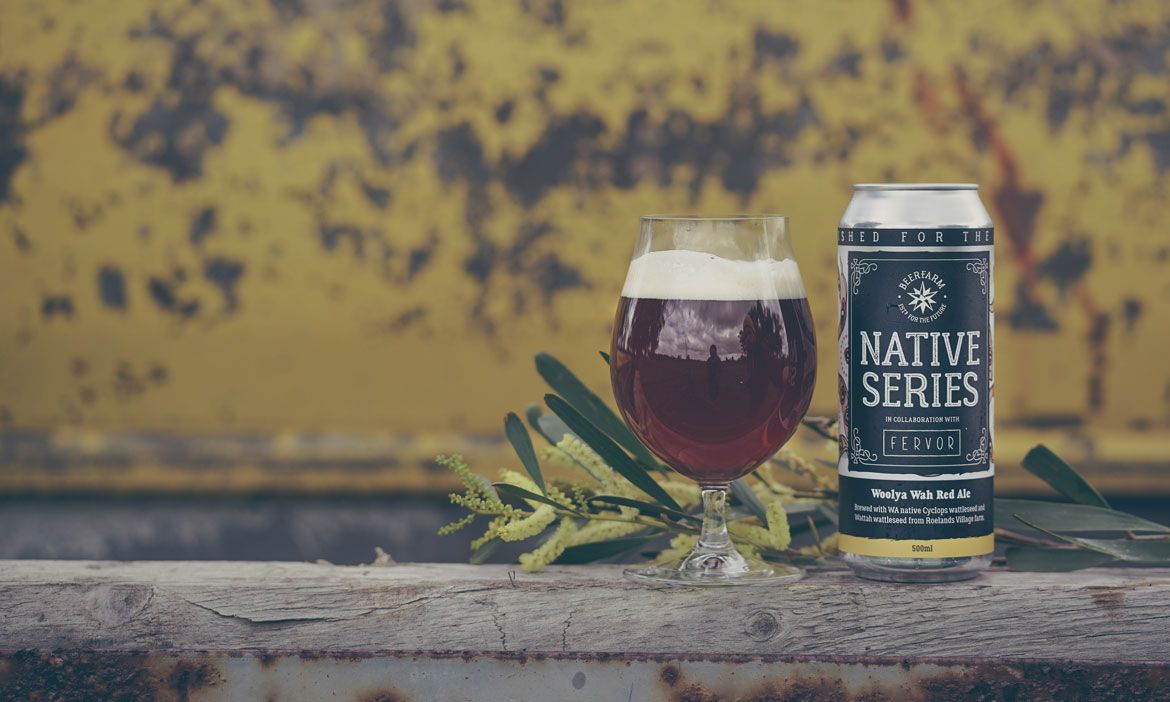
The Fervor team also champions the use of native ingredients and the respect they deserve via their roaming dining concept; it's a means of bringing attention both to the ingredients and the Aboriginal communities in Australia that source, produce, process and sell the ingredients. This is a vital and historically significant trade for many of those communities, one that's often undercut by larger, non-indigenous companies looking to cash in on trends within the food and drinks industry.
As such, Paul and his team have a commitment to not only supporting Aboriginal businesses and community groups directly but also to find other ways in which they can give back.
"It’s important to raise awareness about native ingredients and their traditional uses," Paul says, explaining that the collaborators worked with Roelands Village, a farm in Collie River that was once a mission for Aboriginal children from the Stolen Generations, and the Noongar Land Enterprise on their upcoming release.
"Giving back to communities works in different ways, and with Roelands the team spent the day out there planting trees and gardening while learning about [native] plants and ingredients."
While native ingredients have become increasingly visible on restaurant menus, it's something the Fervor team has been working to perfect for many years. Paul's interest in and passion for the use of native ingredients and traditional cooking techniques was sparked and developed while working at restaurants such as D.O.M. in Brazil, Pujol in Mexico and Noma in Copenhagen. Upon returning to WA, he started applying that knowledge to the ingredients available to him locally, while also immersing himself in Aboriginal culture, learning about traditional foods, medicines, history, values and agriculture.
The importance of respecting the ingredients and using them both ethically and in a considered fashion is something that resonates with Josh too.
"There are not a lot of commercial farmers of native ingredients," he says, "which makes it very important we promote the sustainable cultivation of these ingredients to ensure we can continue to explore this country and its flavours, but also to ensure we are respecting the land and how these ingredients were interpreted in the past and today."
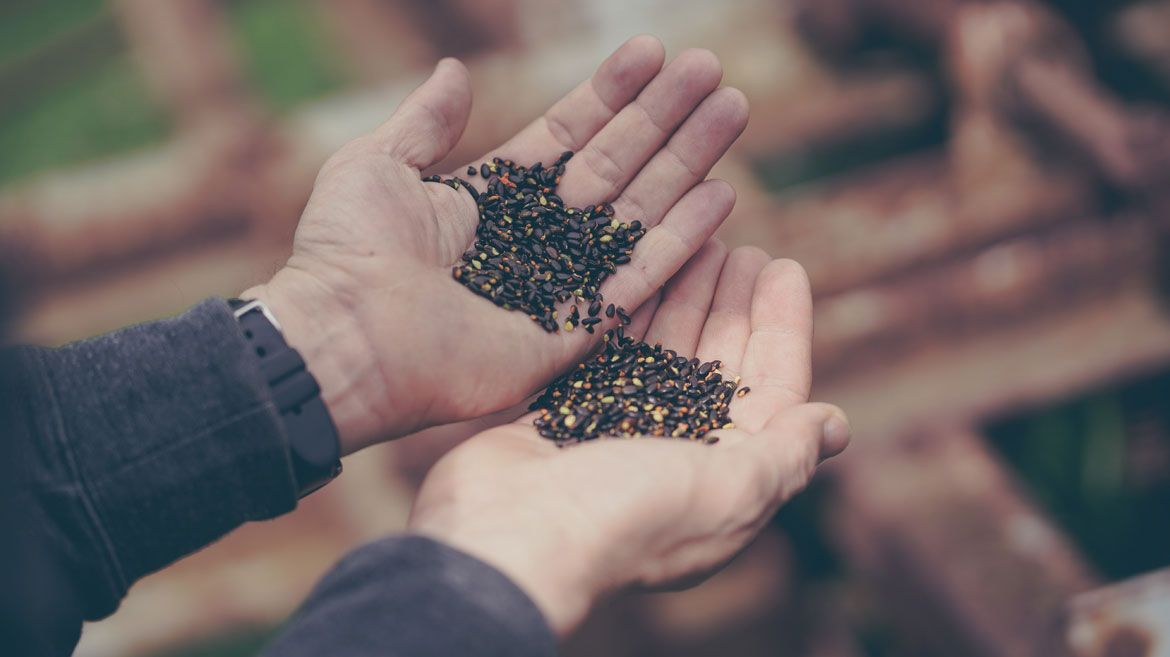
Beerfarm’s Native Series has already proven to be more then a flash in the pan; indeed, it may be one of the most considered beers in the current trend-driven, white male-dominated craft beer industry. It’s become a vehicle for an important message that pertains to both the history and the future of Australian culture, something about which the series' creators care immensely.
"We hope to educate people about Australia's cultural history, both good and bad," Josh says. "We are one of the only countries in the world which has endless amounts of bush foods and medicines on our own doorstep.
"You can't work towards a sustainable future without first understanding and respecting the land."
The collaboration goes beyond sending a message of support: profits from sales of the beer go directly to Roelands Village. These days, the nationally significant historical site exists to support those who were once residents, as well as educate visitors about Australia’s often troubled history, enriching the connection between country and culture and helping young Aboriginal people to build a bright future.
Roelands Village is also where the Wattah and cyclops wattleseeds were grown and harvested for the red ale. The village has a 500 acre farm that borders the Collie River where the wattle grows alongside citrus and other native ingredients.
Traditionally used for food, soap and sunscreen, the wattleseeds found their way into the Beerfarm kettle after being lightly toasted designed to yield nutty and savoury characteristics that pair well with and can be showcased within a malt driven red ale.
Despite the story behind it and the unique nature of Woolya Wah, the Native Series of which it is part is far from the noisy world of trend and hype beers; yet it has meaning that far outweighs its quirk and the series' message – and a reach that grows stronger with each release.
The Australian craft beer landscape is heaving with throwaway beers designed to be loved now and forgotten later and the Native Series would be a contradiction if that were the intention. Instead, it helps tell the story of a culture, history, and people that we can’t heedlessly forget in a society often driven by fleeting moments and expendability.
Woolya Wah, which you can read about here, is set to feature at a dinner centred around native and local food with Yallingup’s Arimia, a winery and restaurant that's been taking the lead on organics and sustainability within the WA food and wine landscape, on October 29. Look out for tickets going on sale nearer the date.
Photo to top of article by Todd Delfs features Mary Aitken and Paul Iskov at Fitzroy Crossing, after Paul had jumped into the river to collect the bulb from the bottom of the water lily.
You can find other articles in the Collaborators series here.





